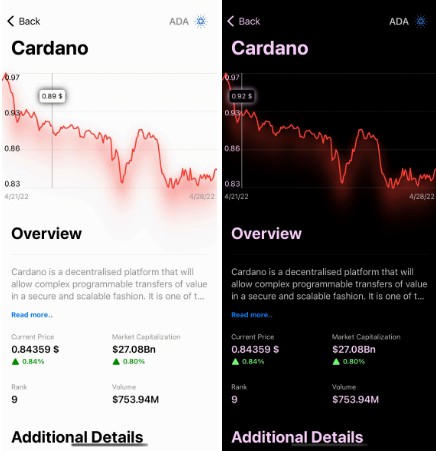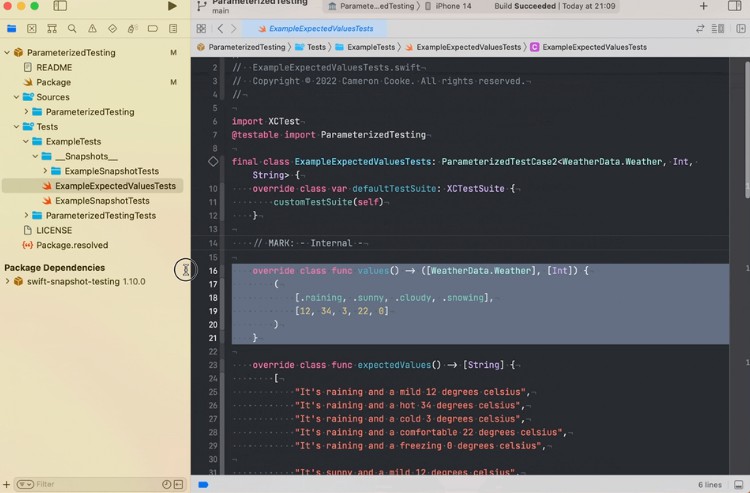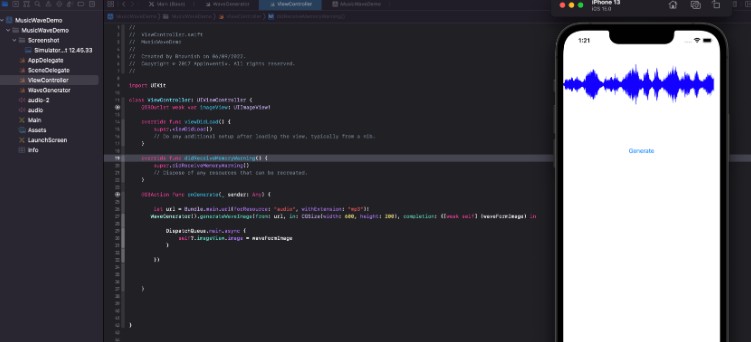Toledo
Toledo is a dependency injection library for Swift that statically generates resolvers at compile-time.
Features
- once it compiles, it works
- async and throwing dependencies
- concurrency support
- multiple containers (no singleton)
- makes no assumption about your code
- conformance can be provided in extensions
- works great with SwiftUI for view model DI
- simple installation process via SPM
Installation
Using Swift Package Manager:
dependencies: [
.package(
name: "Toledo",
url: "https://github.com/valentinradu/Toledo.git",
from: "0.1.0"
)
],
targets: [
.target(
name: "MyTarget",
dependencies: ["Toledo"],
plugins: [
.plugin(name: "ToledoPlugin", package: "Toledo")
]
)
]
Notice the plugin. It should be applied to all targets that use the library.
Usage
Toledo has 3 types of dependencies: regular, throwing and async throwing. Each has its own protocol that needs to be implemented for a type to be available in the dependency container. For example the conformance for a final class IdentityModel to AsyncThrowingDependency would look like this:
extension IdentityModel: AsyncThrowingDependency {
public convenience init(with container: SharedContainer) async throws {
await self.init(profile: try await container.profile(),
settings: container.settings())
}
}
At compile time, Toledo will look for types conforming to Dependency, ThrowingDependency or AsyncThrowingDependency and will store shared instances of each on SharedContainer.
This means that the IdentityModel above will be available everywhere as try await container.identityModel() as long as you have a reference to the container. Notice how an async throwing dependency requires try await to resolve. If IdentityModel would have been a regular dependency, container.identityModel() would have been enough.
Shared instances vs new instances
Calling container.identityModel() always returns the same instance, even in multi-threaded contexts. If you wish to create a new instance within a given container, use the init(with:) directly:
let newInstance = IdentityModel(with: container)
Providing overrides
If you wish to provide alternative values for some of your dependencies (i.e. for testing) you can do so by setting the SharedContainer provider:
var container = SharedContainer()
container.replaceProvider(ProfileDependencyProviderKey.self) { _ in
MockedProfile()
}
let mockedInstance = try await container.identityModel()
Providing a resolving protocol
If you need your dependency to resolve to a protocol you can use ResolvedTo.
extension IdentityModel: IdentityModelProtocol { ... }
extension IdentityModel: AsyncThrowingDependency {
public typealias ResolvedTo = IdentityModelProtocol
public convenience init(with container: SharedContainer) async throws {
await self.init(profile: try await container.profile(),
settings: container.settings())
}
}
Now try await container.identityModel() will return IdentityModelProtocol instead of IdentityModel.
Important note: Make sure the dependency implements the protocol.
Concurrency
Toledo uses Swift’s concurrency model for AsyncThrowingDependency and a simple semaphore for the other dependencies to guarantee that shared instances are never instantiated more than once per container.







